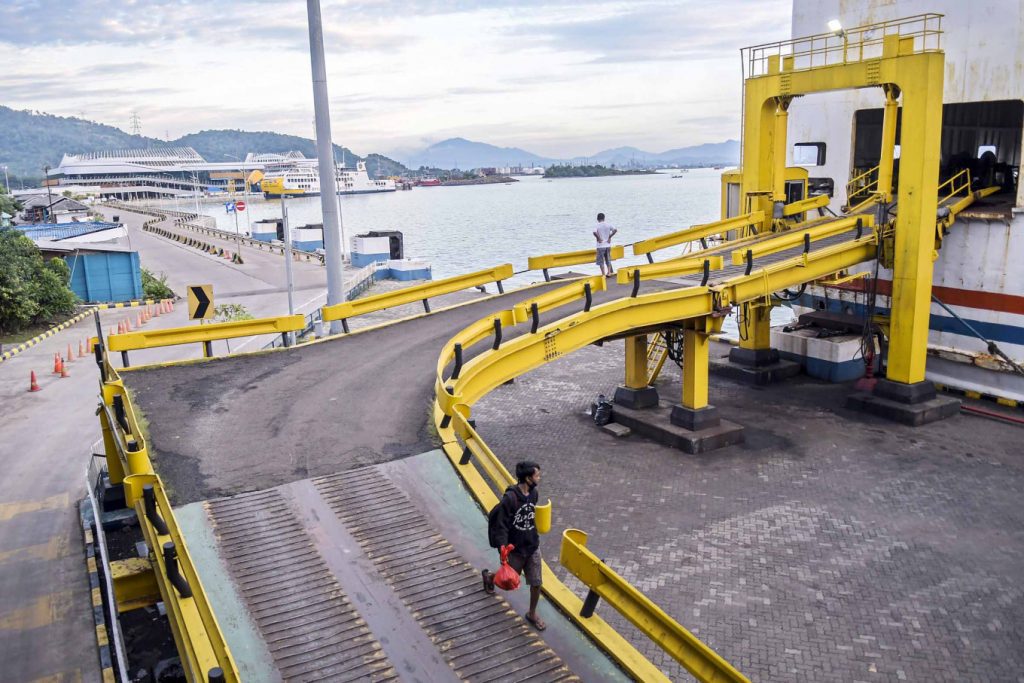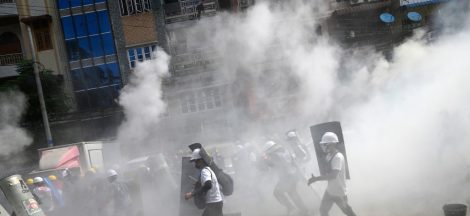Sea transportation sector suffers Rp12.2t in first-half losses. A study by the 10 November Institute of Technology (ITS) in Surabaya shows that Indonesia’s sea transportation sector has recorded Rp12.2 trillion (US$821.9 million) in output losses in the first half of the year, due primarily to the drop in passenger demand as a result of government restrictions imposed to contain COVID-19 transmission.

The ITS study evaluated the impacts on the sector from the Transportation Ministry’s ban on mudik (exodus) from April 24 to June 1 during the Idul Fitri holiday season. The ministry imposed the travel ban as part of the government’s coronavirus response in an attempt to halt the disease’s spread.
Among the losses to the sector that the study attributed to the mudik ban are an estimated loss of Rp862 billion for state-owned shipping company PT Pelni and combined losses of Rp44 billion for inter-island ferry companies. These include ferries operating the Merak-Bakauheni route between the provinces of Banten and Lampung, as well as those operating the Ketapang-Gilimanuk route between East Java and Bali.
“We’ve seen a huge decline in passengers during the pandemic, especially at three main ferry ports and routes. On the Merak-Bakauheni route, the number of passengers dropped around 80 to 95 percent,” ITS rector Mochamad Ashari said on Tuesday, during a webinar held by the ministry.
The decline in economic activities in the transportation industry had contributed to the 5.32 percent year-on-year (yoy) contraction in gross domestic product (GDP), according to Statistics Indonesia (BPS).
BPS data for the second quarter also show that the transportation and warehousing sector contracted 30.84 percent yoy, with the sea transportation sector suffering a 17.48 percent yoy decline.
During the webinar, ITS researcher Ardi Adji said that the contraction in the sea transportation sector in turn caused a ripple effect in local economies, with the provincial economy of Bali suffering the worst blow.
“Bali is highly dependent on its tourism sector and tourist flows by sea transport. Therefore, the decline in the sector caused the island [province] Rp824 billion losses in the regional GDP, making it the worst-affected province,” Ardi said.
He suggested that the government provide fiscal incentives for shipping lines to cushion the economic impacts of the COVID-19 health crisis.
“The government could roll out several alternative incentives for sea transportation operators, such as interest subsidies and payment deferrals,” he said.
Carmelita Hartoto, who chairs the Indonesian National Shipowners Association (INSA), expanded on Ardi ’s statement, saying that the government had still not responded to the association’s request for non-tax revenue (PNBP) waivers.
“We have to cushion the severe income decline caused by the pandemic. It’s hard to sustain our operations if the economy continues to worsen, and this could [in turn] lead to a wave of layoffs,” she said.
State-Owned Enterprises Minister Erick Thohir, who also chairs the COVID-19 Handling and National Economic Recovery Committee, made assurances during the webinar that the government would maintain steady distribution of its stimulus funds until next year to boost the economy. The government has allocated Rp695.2 trillion to stimulate the economy, focusing on healthcare, social protection and economic recovery programs. Six months into the crisis, however, it had disbursed only 34.1 percent of the funds, or around Rp237 trillion. Sea transportation sector suffers Rp12.2t in first-half losses: ITS study (Mardika Parama, The Jakarta Post)





 Solar Start-up Xurya Becomes First Recipient of Southeast Asian Green Fund
Solar Start-up Xurya Becomes First Recipient of Southeast Asian Green Fund 